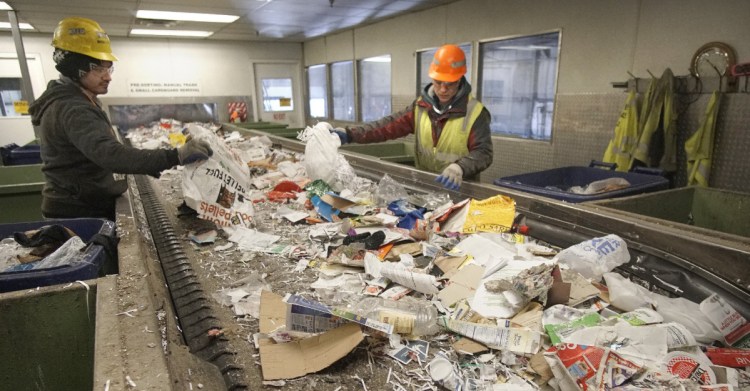Most people laughed in 1954 when the editor of a trade journal called Modern Plastics told an industry conference that the future of their business “is in the trash can.”
But they weren’t laughing nine years later, when Lloyd Stouffer addressed the same conference and congratulated the attendees on fulfilling his vision.
“You are filling the trash cans, the rubbish dumps and the incinerators with literally billions of plastics bottles, plastics jugs, plastics tubes, blisters and skin packs, plastics bags and films and sheet packages,” he crowed. “The happy day has arrived when nobody any longer considers the plastic package too good to throw away.”
We are now paying the price for that success. Single-use plastics are not only filling the trash cans and landfills but also are blowing around the landscape and into the oceans, where they break into small particles, but they never go away. Plastic particles are in coral reefs, in the digestive systems of aquatic life and forming islands of trash in some of the most remote parts of the world.
WASTE STREAM
Unlike paper, metal and glass, which can be recycled into high-quality new products, plastics are not so easily broken down and are of limited utility. Plastic bags and other packaging are one of the most common contaminants in the recycling stream for the Portland-area waste-to-energy plant ecomaine, which has had to increase its tipping fees to municipalities as a result.
So while the trash can may be good news for the industry, it’s not for the environment or for tax payers. These problems are just going to get worse: Researchers have determined that more plastics were produced in the last 20 years than in the previous 70. And the industry plans to increase plastic production by 40 percent in the next decade.
Since the plastics industry won’t slow itself down, it’s up to government to step up. So we are happy to see the Maine Legislature considering several bills to ban or restrict the use of single-use plastic shopping bags.
Twenty towns and cities across Maine have enacted either outright bans or fees on plastic shopping bags, and at least a half-dozen more are considering local ordinances. Many of those policies were approved in the two years since state lawmakers last considered a bill to ban plastic bags.
NO RECYCLING MARKET
It was defeated, but since then there has been a global collapse in the market for plastic for recycling, and grocery chains and other retailers that operate in more than one community may be open to a single statewide standard instead of a hodgepodge of local ordinances.
There is also a growing understanding among consumers about the costs of a product that’s not too good to throw away.
Don’t expect the industry to give up without a fight. Litter will be blamed on individual bad behavior, not on the maker of the material that’s being thrown away. And they will argue that consumers will find it inconvenient to switch from single-use plastic shopping bags to durable reusable ones.
But an industry built on a promise to fill “trash cans, the rubbish dumps and the incinerators” can’t be trusted to look out for the public good.
Consumers will be able to adjust to a world with limited single-use plastics more easily than they will adjust to higher waste disposal costs and poisoned oceans. Maine should lead the way on this issue.
Copy the Story LinkSend questions/comments to the editors.



Success. Please wait for the page to reload. If the page does not reload within 5 seconds, please refresh the page.
Enter your email and password to access comments.
Hi, to comment on stories you must . This profile is in addition to your subscription and website login.
Already have a commenting profile? .
Invalid username/password.
Please check your email to confirm and complete your registration.
Only subscribers are eligible to post comments. Please subscribe or login first for digital access. Here’s why.
Use the form below to reset your password. When you've submitted your account email, we will send an email with a reset code.